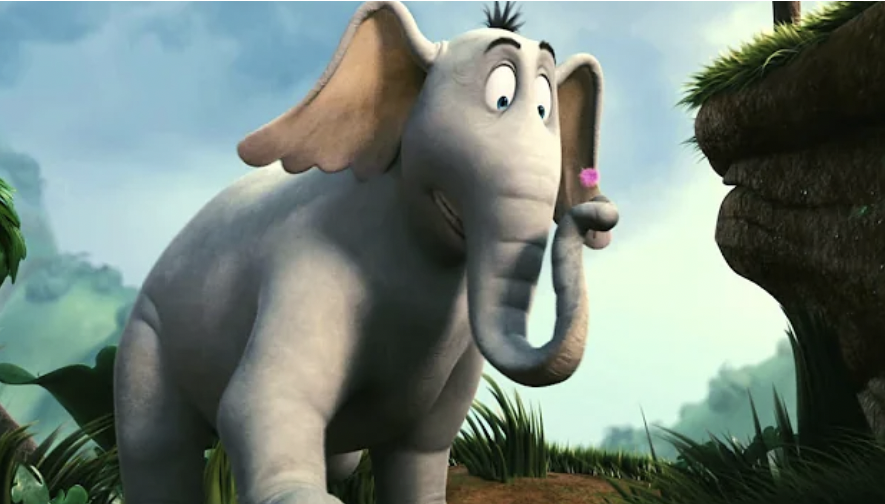Opinion: The unbroken legacy of Dr. Seuss
Credit: Courtesy of “Horton Hears a Who” trailer on YouTube
WSPN’s Talia Macchi discusses the controversy behind some of Dr. Seuss’s most treasured books.
March 23, 2023
From “Horton Hears a Who” to “If I Ran The Zoo” and from “Mr. Brown Can Moo Can You?” to “Happy Birthday to You,” Dr. Seuss has enlightened young readers with the wondrous fictional stories he has created. March is national reading month in honor of Theodor Seuss Geisel and his inspiring tales. However, there has been constant controversy over six of his beloved books, causing them to be taken off the shelf.
I grew up reading the tales of the Whos in Whoville. I was amused by the colorful pages, the rhyming words and the funny little personalities of every character. My adolescent self would never think anything bad of these books, nor would my parents who bought them for me. Even now at 17, I still think they are wholesome reads. So, what’s the issue with them?
On March 2, 2021, Dr. Seuss Enterprises announced that they would be discontinuing six books due to hurtful and racist portrayals. For example, in the book “If I Ran the Zoo,” there are drawings of African men dressed in grass skirts, depicting them in a similar way to the animals on the page.
Cartoonists and authors have some of the most creative minds in the world, and Seuss is no different. He created some controversial political cartoons in the 1940s, which he did by letting both his positive and negative drawings spill out onto paper. Yes, he was trying to get a message across with his political cartoons, and yes, they were racist. But with his books, all he was doing was trying to bring joy to young readers. He didn’t have any bad intentions with his bubbly doodles.
I can understand why the six books were discontinued and how they could draw a bad name for Seuss. Elements of racism, whether intentional or unintentional, should not be tolerated, but it’s also reasonable to consider that some of the minor elements were purely innocent and the perceived references are just coincidental. “If I Ran the Zoo” is solely about the power that imagination gives us and how important it is to use that imagination.
Parents want the best for their children and want to do their best to raise them right, so it makes sense that they might notice the fine details of the stories their kids are reading. What children learn at a young age can influence them for the rest of their lives.
I think it’s great that Geisel’s readers are noticing things that he might not have originally intended or considered in his work, and that Seuss Enterprises is dealing with it. But there should be more talk about his wonderful legacy, not the controversy over something that most readers likely won’t notice. Rather than banning the books from children’s bookshelves, Seuss Enterprises could revise or edit the “controversial” aspects of these books.
When I think of Dr. Seuss, I think of my young years reading “Horton Hears A Who” with my babysitter, watching “How the Grinch Stole Christmas” with my family and listening to my second grade teacher read “Wacky Wednesday” on Wednesdays. A colorful, nostalgic world fills my head whenever I hear his name. Even though I realize how his unintentional errors can be seen as harmful, they won’t leave an impact on his legacy for me, and I assume the same goes for many others my age who grew up with his tales.
All of Dr. Seuss’ stories left an impact. Each book showcased problem-solving skills. They acted as an enjoyable way for kids to learn about important concepts like the alphabet, sounds and colors. And the messages his books delivered were wholesome and incredibly fun.
There are many other children’s book publications out there publishing similar children’s stories, but I think every kid should know the tales of “The Cat in the Hat” and the “Lorax.” All while explaining life lessons and educating readers, Seuss told these stories in a playful light that does not compare to anyone else. After all, he did say, “a person is a person no matter how small,” and that is something I will never forget.


























